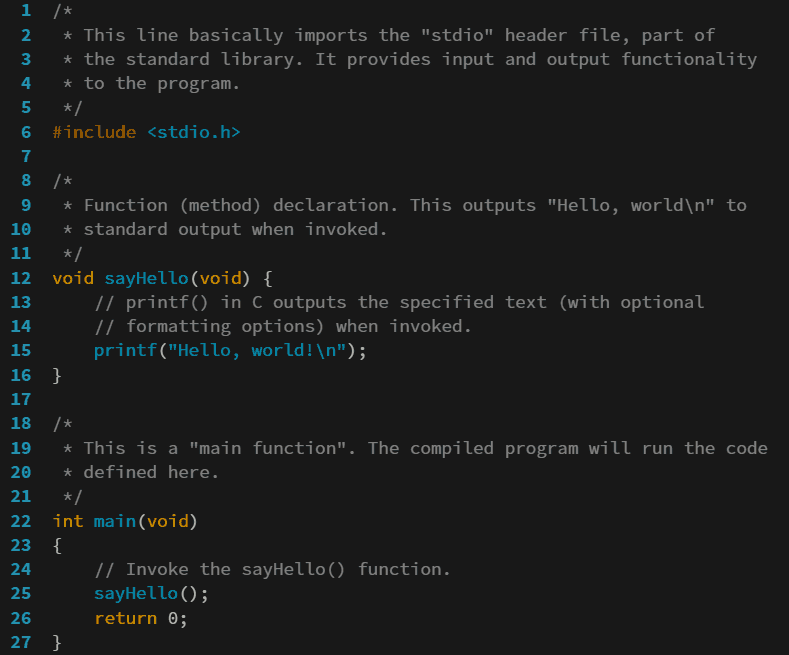Today in Edworking News we want to talk about A reckless introduction to Hindley-Milner type inference (I've been editing this post on and off for almost a year. I'm not really happy with it, but I suspect I never will be.) Several months ago I gave a talk at work about Hindley-Milner type inference. When I agreed to give the talk I didn't know much about the subject, so I learned about it. And now I'm writing about it, based on the contents of my talk but more fleshed out and hopefully better explained. I call this a reckless introduction, because my main source is wikipedia. A bunch of people on the internet have collectively attempted to synthesise a technical subject. I've read their synthesis, and now I'm trying to re-synthesise it, without particularly putting in the effort to check my own understanding. I'm not going to argue that this is a good idea. Let's just roll with it. I'm also trying to tie in some quasi-philosophy that surely isn't original to me but I don't know if or where I've encountered it before.
 Background
Background
When people write software, it sometimes doesn’t do what we want it to do. Running the software to test all possible inputs isn't feasible due to the sheer number of variables. Mathematically proving the software's correctness without running it would be ideal. This leads us to the Halting Problem, a well-known challenge in computer science that proves it’s impossible to determine whether arbitrary programs will finish running. Although the problem is undecidable in general, we can still work around it using certain compromises.

Image Description: Developers testing software in various scenarios to identify potential issues.
 Tradeoff Between Expressiveness and Legibility
Tradeoff Between Expressiveness and Legibility
A noteworthy point about programming languages is the tradeoff between expressiveness and legibility. A language is expressive if it allows you to easily write varied programs, and legible if it allows for easy understanding and reasoning about the programs. Hindley-Milner (HM) type systems strike a balance between these two aspects. Languages like Elm and Haskell, which we use in our company, utilize HM type systems prominently.

Image Description: Comparison of various programming languages focusing on expressiveness and legibility.

 Hindley-Milner Type Systems
Hindley-Milner Type Systems
What makes HM type systems compelling is that they offer a powerful type inference mechanism. Type inference in HM systems works as follows:
- Types and Type Variables: Basic types such as Int, Bool, and more complex constructs like List Int.
- Functions and Applied Types: Handling function types and recursive structures within the language.
Type Judgments and Specialization: Inferring types efficiently without requiring explicit type annotations.
Type inference systems ensure that code will compile only if it meets specific type constraints, thus eliminating many runtime errors. Both Elm and Haskell leverage type inference, but there's a tradeoff in terms of restrictions on how programs can be written to allow type inference.
 Motivation
Motivation
In designing a programming language, the Hindley-Milner type system provides a valuable tradeoff between expressiveness and legibility. HM type systems allow for type inference with powerful capabilities that help prevent many runtime errors. While the restrictions imposed can seem limiting, they ensure that programs conform to a defined structure, eliminating a significant class of bugs.

 Wrapping Up
Wrapping Up
If you have a language with HM features, you can perform type inference, allowing you to write safer and more reliable software. Mechanical construction of proofs about the code can be automated, ensuring legibility and predictability.
Remember these 3 key ideas for your startup:
- Leverage Type Inference: Utilizing Hindley-Milner type systems in your programming can significantly reduce runtime errors and improve software reliability without the need for extensive testing.
- Balance Expressiveness and Legibility: Understanding the tradeoff between expressiveness and legibility in programming languages like Elm and Haskell can help you choose the right tools for your startup’s projects, ensuring both flexibility and clarity.
- Adopt Efficient Tools: Using tools and languages that support HM type systems makes your development process smoother and more predictable, enhancing your productivity. Edworking is the best and smartest decision for SMEs and startups to be more productive. Edworking is a FREE superapp of productivity that includes all you need for work powered by AI in the same superapp, connecting Task Management, Docs, Chat, Videocall, and File Management. Save money today by not paying for Slack, Trello, Dropbox, Zoom, and Notion.
By focusing on these principles, your startup can streamline its development processes and avoid many common pitfalls in software development.
For more details, see the original source.






